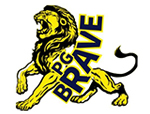With Fall swiftly approaching and businesses looking to ramp up for the final quarter of the fiscal year, Signal’s VP of Business Services & Commercial Loan Officer Martin Yescas and Digital Content Marketing Specialist Dorian Young spill the tea on all things business finances in this segment of Signal Sips.
Watch the entire interview here or read the transcript below.

DY: [First], I think it’s paramount to discuss if you’re a tea drinker or a coffee drinker, or if you’re a little bit of both.
MY: I am both, but depending what type of stress I’m under, it will probably most likely be coffee.
DY: I feel like we’re kind of cheating today because we both have coffee – it’s a little bit of a cheat – but, hey, we’re still spilling the tea. We’re still going to share these little tips with [everyone] and have a good time.
DY: So, Martin, first off, can you tell us a little bit about your role here at Signal and your journey so far in the financial industry as it has been up until today?
MY: Sure. […] I’m the VP of Business Services and I’m also a commercial loan officer. I’ve been in finance services for about 21 years. I started out in branches. I was a branch manager first, and then I went to different institutions as a branch manager. I’ve been with Signal for nine years, as of June 26th, this past month.
DY: Oh, wow. Congratulations!
MY: Thank you. It doesn’t feel like it’s been nine years but, like I said, and now here at Signal, I was a branch manager. I was also a commercial branch manager. And through those roles, then I eventually came upstairs to the business services area. And now currently in my role as a VP of Business Services and also as a Commercial [Loan] Officer.
DY: That’s amazing. That’s a very clear journey and trajectory of growth, I feel like. And I think that’s really interesting to see in this industry. Have you always worked in the area? [Have you always] been in the DMV area or have you kind of bounced around?
MY: Yeah, pretty much [for] my entire career, I’ve been pretty lucky just to be in this area. And I love this area. So, like I said, I first started out in the retail industry back or way back when. And then I did that for about 15 years, and then I transitioned into the financial industry.
DY: Are there certain skills that you find that were transferable across both or anything that kind of contributed to an ease of that switch, or was it a little bit abrupt?
MY: No, it was easy in the sense that, you know, you’re working with customers. You know, when I was at a commercial bank, it was still customers. Now that I’m in a credit union, it’s members. But at the end of the day, it’s how you build relationships and how you’re helping. In one industry, you’re kind of helping people with their disposable income, and then you’re kind of changing roles in that. You’re helping people [learn] how to conserve their disposable income and helping them to figure out ways how to navigate for and plan for their future.
DY: So now we’re going to shift gears a little bit and get into the tea of the session. Talk a little bit about business finances. So, can you describe the different types of commercial loans that businesses might seek and what they would be used for in that sense?
MY: Sure. All banks or credit unions will offer some similar products. We have commercial real estate loans. We offer vehicle loans. We also have equipment financing that we offer, business lines of credit for when you need money for working capital. We also do offer business credit cards. In addition to that, we also partner with SBA for 7A and 504 loans. So, we do that to make sure we have a pretty robust suite of [solutions] to offer our members.
DY: Is there any one [solution] that you’ve seen more interest in or the most interest in?
MY: Historically, for us, we’ve always been in the commercial real estate sector. That’s kind of just been sort of our bread and butter as a credit union since I’ve been here, and whether it’s owner occupied or investment property types or multifamily. So, we kind of feel like we know that space pretty well. We’re continuing to evolve and trying to sort of branch out into different areas of that commercial lending space.
DY: I don’t think before coming here I really knew the realm of all of the commercial lending side, especially when it comes to businesses. So it’s interesting to hear that it is more on the commercial real estate lending side it sounds like.
MY: Yeah, we want to diversify, obviously because I think it allows us to serve our members best, right? We have so many different types of businesses, especially with the small businesses [that have] been struggling in the past.
DY: Yeah. I’m sure especially with the pandemic and everything.
DY: And then are there any specific financial strategies that you would consider or suggest for small businesses […] in order to see long-term success?
MY: Sure. I think, initially one of the first things when I was at the branches, and I think one of the things that we talk about in general is making sure that they select the proper legal structure for their business. That’s going to be important for them whether it’s a sole proprietor, a limited liability company, a corporation, or partnership. It really should be something that if they’re not completely versed on it, they can partner with their accountant to see what legal structure is going to be best for them. Because they can understand what the tax consequences could be for them. Also how to mitigate liability to themselves personally and also to the business.
DY: Yeah. I know there’s a blog post on the website. We have a Small Business Series that is under our Content Corner. And one of the small business series, I remember, is about selecting what legal structure you want and which one works best for different businesses. I can’t recall which one they said works best, but I remember the sole proprietor, and then what was the second one?
MY: Limited liability corporation.
DY: Yeah. And I think there were a couple of others.
MY: And again, what we see here at the credit union generally are either sole proprietors and limited liability companies. And so those are pretty much what we see in general. And so again, what we try to do is to make sure that that is the proper structure that they want to carry going forward. Especially in a sole proprietor because that can potentially expose that business owner to personal liability.
DY: Sounds like something you want to avoid.
MY Yes, I would say so.
So some of the other things I think that they should also do is if they want to establish a separate personal and business account, a lot of times what we’ll see is a business owner that commingles their business revenue with their personal, and that can create a little bit of a quagmire when you’re trying to take out what the business is actually producing versus what’s in your own personal account. So that’s one of the things that they should do.
They should also create a business budget. They should really look at what it is that they’re trying to spend. Do they have a plan for any projected projects that they might need to do or improvements for their business.
They should also think about paying themselves first. A lot of business owners, especially when they’re starting out, they’ll put a lot of their own personal funding into the business. And while they’re paying – it could be 3 or 4 employees they are paying first, but not paying themselves. And sometimes they’ll wait until the end of the year. Maybe they’ll take a distribution. […] You know, most businesses, if you pass a 2-to-3-year period, you’ll be able to – it’s not a guarantee, obviously – but the likelihood of you succeeding increases if you get past the two or three year period. I would say three year. But that’s again, paying yourself first to ensure that you are taking care of yourself first.
DY: Yeah, of course. Especially after putting so much money into it.
MY: The other parts that they would want to do is obviously maintaining good credit. Not only for the business, [but] credit for themselves as an individual. You are your business. So, maintaining, great personal credit is important, but you also want to make sure you establish good business credit.
Don’t be afraid to take out some loans in case you need some working capital to either grow your business or to just make sure that you have enough reserves in order to make sure that your business operates the way you want it to. But obviously it’s important for you to make sure that you’re looking at the rates that you’re going to be procuring those loans [at].
DY: So you’ve got your personal credit and then for the business credit, is that applied for through the business name or the entity name?
MY: Bradstreet is usually the one that the business can go out and enroll and then they have that criteria for you to be able to establish that.
The other critical part is to make sure you’re reviewing your business cashflow, your business expenditures, on a weekly or monthly basis. Whatever is going to be beneficial to you or whatever is going to work for you. You lay it out, you kind of have to have that routine, whatever is going to make sure that you are keeping an eye on the business.
You know, a lot of business owners do their work and while the business might be running, the business is running them. They’re not really running the business. So you want to make sure you take the time to really look at your finances and have that eye on it. Even though you may have a bookkeeper or an accountant, you want to make sure [that] whatever’s coming in the front door is not going out the back door.
DY: So we did briefly touch on the pandemic, but considering the current economic trends and factors, what are some challenges that you’ve seen for small businesses, and maybe larger corporations, that are really affecting finances at this point in time?
MY: Sure. I mean, like you said, I still think the pandemic is still affecting a lot of small businesses and a lot of those small businesses that are still in operation are still struggling. They kind of tell us on a regular [that] they’re still not seeing some of their traffic levels come back to normal. Even if they get that traffic coming back or if their orders are coming in as they would normally look at prior to the pandemic. They obviously are feeling the cost of materials are higher. The perishable goods are higher. Materials for their businesses are costing them more money. So, how to balance that – the higher costs with the pricing of their services. What does that look like? And being able to balance their profit margin that they’ve established versus now the higher costs. And what is that? How does that impact? And then those are the challenges that they’re looking at.
And they’re really looking at if they’re increasing [the cost of service] to match what their [business operating] increases are, they potentially are going to lose some of their loyal customers, in addition to possibly not attracting new customers. Because they may be priced out of the market. Whether a competitor might be able to, again, absorb some of those higher cost because either they’ve been in business a lot longer [or] they may have a loyal customer base. Those are some of the challenges that they would have.
In terms of the whole economic condition that we have, the other part or some of the things that they would want to look at is, are they hiring the right talent? Sometimes talent can be expensive to acquire. And it costs you less to actually retain it. But making sure that you hire the right talent from the beginning to make sure that you’re positioning your business to be successful. That’s one of the things that they should look at.
And one of the things that we’re doing [at Signal] – by the way, I’m not really a social media guy – but that’s one of the things I’d like to allude to, is that you have to kind of reposition yourself as a business owner to be uncomfortable in and being comfortable in different mediums. Like embracing YouTube, Facebook, LinkedIn, Instagram, TikTok, or those platforms that could potentially put your business out there and attract new clients to you. Because, again, that’s the whole new technology that’s going to be a marketing arm for you where you’re not necessarily having to spend a whole lot of money in other marketing mediums.
You know, back in the day it was a lot of newspaper ads. A lot of print newspapers [aren’t] being bought and people [aren’t] utilizing newspapers. So, you know, you’re going through those other mediums to kind of advertise and to make your business a little bit more attractive.
DY: Yeah, of course. I was doing some research a couple of days ago and reading up on some things, and I found, interestingly, how TikTok has become more of a search engine than Google has recently. They’re kind of neck and neck right now. And I’ve also found myself doing the same thing, where if I’m going somewhere new and I want to find a good spot to eat food or even, you know, if I move somewhere and I’m looking for a new bank, I find myself going to TikTok first to look for that stuff. Because I think there’s a certain element about it where even if it is a sponsored video or a paid partnership, there’s just something very organic about the feel. And it is all psychological, but you feel like you can trust those people a little bit more than if you just went onto Google and [searched] what’s the best credit union around here? What’s the best restaurant? And then it just kind of feeds you the ad space that people have paid for on those pages, if that makes sense.
MY: It does. And then obviously, you know, the other part of that is, as we continue to evolve to different generations, those mediums, I think, seem to be more attractive. And that’s going to be more relevant in their daily use versus someone trying to, you know, go do a Google search. Or to go out to a newsstand and buy a newspaper.
DY: So, speaking of credit unions, what are some of the benefits of working with a credit union, like Signal, versus a commercial bank for a business for these types of loans or [solutions] that they’re looking for?
MY: So, obviously as a credit union we’re member owned and we are controlled by our members in how they utilize our services. So, they’re the ones that we respond to. In the commercial banks obviously, you have shareholders. So, as a credit we try to meet the needs of our membership because we are utilizing some of the funding, some of the deposits they bring to us, to try to help to facilitate member loans. And so it’s really important to maintain those relationships to make sure that as a credit union we’re not only meeting our membership needs, but also the needs of the community that we’re in. So that’s going to be something that credit unions have done historically.
As far as credit unions are concerned too, more often than not, they’ve been pretty stable in comparison to some of the larger banks. So that’s one of the things that credit unions pride themselves in, is that they’ve always been very stable. And we operate for the well-being of our members, which includes our business memberships. For us at least, you have to have a personal membership before you can have a business membership. So that’s what we try to do. We build those relationships. We try to provide the best services for our members – and business members, that is. And we’re also constantly looking at ways of how we can improve that experience for our business memberships. And also, that part goes along with soliciting some feedback from our members – business members, that is – that maybe have different suggestions and they have different needs.
For a credit union to have a business department or a business lending area is very rare. We’re in a space that’s very unique. Now we’re not as large as some of the commercial banks, so there are some things that we may not be able to offer, but we’re also constantly looking at ways that we can offer those items that we know might be beneficial to our members.
DY: Is there something in particular that you think contributes to the stability of a credit union over a bank?
MY: I think part of it is obviously that the mission has always been by members for members, and the mission of the leadership that in every credit union is to make sure they stay true to that mission. The other part of it is, members want to be able to turn to their credit union – to their bank – in their times of need. Not when everything is going great. When everything’s going great, you have more options. And a lot of members feel like the credit unions have been there when there was a time of need. More often than not, we like to say that we’ve been able to meet them where they are. Obviously we have a responsibility to our membership, so sometimes we’re not always going to be able to meet that demand, but we’d like to think that we’re more successful than we’re not.
DY: So are there any final tips or suggestions that you might have for businesses to help improve their overall financial health?
MY: I think it’s important to remember to talk to your financial professionals. You may think you don’t necessarily need an attorney or not necessarily an accountant. You may not even need a financial advisor. A lot of business owners function as all three. But that’s where you can get into a little bit of trouble because you’re also running the business. So it’s also important to maintain those other professional relationships to make sure that you’re getting the proper advice and that you’re positioning your business to be successful and to avoid any pitfalls. […] That could be either legal or a tax consequence where [you’re] so busy doing something else that you might have missed the tax filings or something like that.
The other part is to make sure wherever you bank [you] utilize the tools that are being provided to you. You know a lot of the tools are provided to you online, whether it’s a commercial bank or a credit union. They offer you tools to be able to not only manage your finances in terms of what’s coming in, but also what’s going out. Whether it’s through having some cash management services, which would include merchant services, or being able to pay invoices online. Those are the things that you want to look at. See how you can make it easier for you to bank. And also, sometimes all the reporting that you might need for the end of the year or quarterly taxes you might need to file, might already be able to be downloadable for you on those sites. So really being able to look at that piece, as far as how that can help you.
And then also, one of the things that’s important is, just because you’ve been in business – whether it’s three years, five years, 10 years, 15 years – it’s important to review your goals and strategies annually if you can. Minimally, I would say look at your outlook for 3-to-5 years and see what your strategy is to grow your business or to maintain your business.
In addition to that, make sure you establish some reserves. Everybody has a checking account, but not everyone has either a higher paying interest rate savings account or a money market that would [help] your money grow. That’s one of the things you have to look at it. And what does that look like? That depends on your business. You’ve got to start somewhere. Because something might come up as far as a business need. You might need to replace some equipment. You might need to have some repair work done. Having that additional reserve is important. And a lot of times it could also be a lease payment that you’re planning for in the event that you have a slow month and you have to turn to that reserve to pay that lease [for] that particular month. So, I mean, it’s hard, to do that and to budget for that.
DY: Yeah. I think even though maybe right now the economic portion of things is a little unsettled, but I think that a lot of businesses have access to so many online tools and additional features that, in this day and age, there is so much information and [so many] resources available to them that it kind of helps in that regard to make sure that they know where their money’s going, how to put it into a savings account, make sure they’re saving for emergencies, or just get that financial advising and that help, either online or in person.
MY: Yeah. I mean it’s very needed. And obviously we’re talking about relationships, right? A part of that is to make sure you speak to your business banker or your branch manager at your bank. A lot of times, people don’t want to go into the branches, and so that makes it a little bit challenging, but there’s a call center. We have a call center. And there’s a way to not only reach the business services area, but also [answer] questions you might have about your business. The call center is more than capable to answer those questions and usually they’ll be able to route them if you have additional questions that they may not be able to answer. The important part is reaching out and asking for the assistance that you might need to have a solution for what you might be facing.
DY: Yeah, exactly. I think a lot of people might be hesitant to take that extra step to reach out, but in the end it’s not like anything bad is going to come of it. If you need the information, you’ve got to get it somehow.
MY: That’s true.
MY: [There are] a few things that hopefully help.
DY: I’m sure it does. Was there anything we didn’t touch on that you wanted to talk about or any questions that you might have?
MY: No, I think we covered pretty good amount of information. Obviously, this is just a snippet. It’s not necessarily everything that a business owner is going to need or would need to know. I think it’s important to know that, as a credit union, we try to build those relationships and be there for our members. So, for those of you that are not necessarily in the credit union or those of you that are in the credit union, reach out and ask questions and we’ll be more than glad to help and answer any questions you might have.





